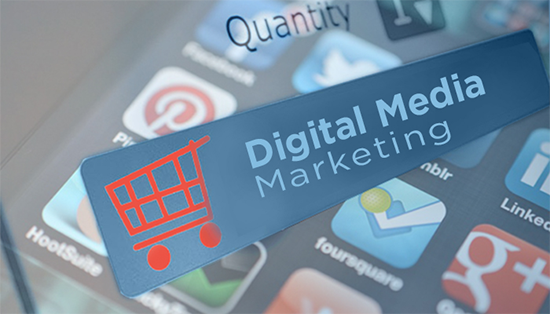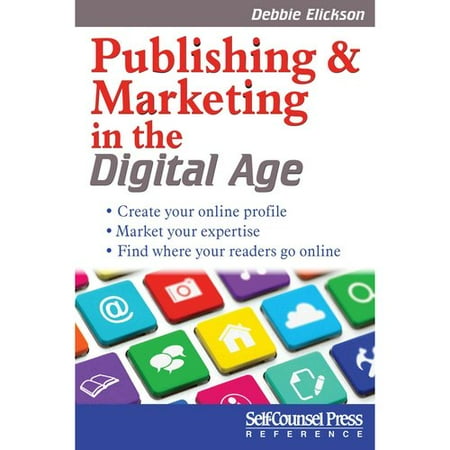Seven Digital Media Marketing Channels with the most ROI
https://admateacademy.blogspot.com/2017/02/seven-digital-media-marketing-channels.html
 |
| © March Oyinki 2017 |
A general overview shows that things are looking up in the digital media marketing industry, and in the mist of all the favourable indicators lies a huge challenge of sorting and applying the very best marketing mix, and discarding those that other channels that are not bringing in the expected returns on investment.
In the midst of all the different marketing channels that are available to us, you may want to ask which of them provides the highest ROI and are the most used by digital media marketers in the last few years? Having the right analytics or statistics in planning and implementation of your marketing strategies makes a big difference between success and failure.
For instance, have you taking time to find out why 90% of all the big organizations using digital media marketing prefer to use content marketing, or why 93% of companies use social media as their content marketing channel, and also why SEO, as an integral part of any digital marketing strategy, is use most frequently by marketers?
Reviews, reports and predictions by experts about the prospects of digital media marketing in the year 2017 and beyond are abound. For example, looking at the digital media marketing sector globally as contained in the Invespro report for 2016 shows that Global online retail sales hit $1.888 trillion, growing at a rate of 7.4%, and is expected to increase to $2,489 trillion, with an estimated growth of 8.8% in 2018.
The growth in this sector is most felt in countries such as United Kingdom and China with the most online retail sales, and are occupying first and second places with 14.4% and 12.0% growth rates respectively, and leaving the United States at a distant eight position on the list. In Africa, Nigeria tops online retail sales with 2.3%, followed closely by Kenya 2.0% and Algeria 1.6%.
If you take a cursory look at the performances of all of the digital media marketing channels, it unveils an interesting pattern that forms the strategic direction of the sector in the year 2017 and beyond.
Content Marketing
There are very few digital media marketing strategies that have proven to be more effective in the last few years than content marketing. Content marketing has retained the number one position among other methods. Some experts even use the phrase 'content is king' to describe its dominance.
Social media content, blogs, case studies, e-newsletters, videos, articles on websites, illustrations/photos, webinars/webcasts are the most used content marketing strategies by marketers in promoting a brand, and this is so because content marketing requires only about one third of the cost of traditional marketing and yield three times as much on ROI.
What is Content Marketing? A number of times I had the need to mention content marketing as a method of marketing a brand to advertisers, and the recurring question they ask is; what exactly is Content Marketing? Such occasions, always gives me the opportunity to offer a definition and provide some explanation of what content marketing means.
Content marketing is a type of marketing that involves the creation and sharing of online material such as videos, blogs and other social media posts that does not explicitly promote a brand but is intended to stimulate interest in its products or services. Content marketing basically, is to create and distribute content with the purpose of attracting a targeted audience to follow or patronize a brand and retain them as customers.
Content Marketing Institute defined content marketing as a strategic marketing approach focused on creating and distributing valuable, relevant, and consistent content to attract and retain a clearly defined audience – and ultimately to drive profitable customers action.
Advantages of Content Marketing: Content marketing have several advantages over traditional marketing such as, high ROI, low cost of implementation, committed customers and providing of specific solutions of the brand. Content marketing also have high loyalty rate and customer retention. Customers look forward to new content and updates from the brand to help them keep abreast of product information and new features that have been added or are in the market.
Affiliate Marketing
Affiliate marketing started when website owners started selling contents that were created by advertisers to millions of consumers across the globe in the early 90's, thereby turning the Internet into a global online marketplace and spiraling into what is now known as e-commerce. Affiliate marketing has grown since then to become a multi-billion dollar industry.
What is Affiliate Marketing? Affiliate Marketing is a tripod relationship between three key players, mainly the advertiser, publisher and the consumer; whereby the product owner registers as Advertiser with the publisher and offers to pay a fee based on pay-per-click (PPC) to publisher, and then the publisher distribute these adverts in form of codes to its Affiliate channel websites either as banners, links or as content to be sent by email.
Affiliate marketing is defined by Wikipedia as a type of performance-based marketing in which a business rewards one or more affiliates for each visitor or customer brought by the affiliate's own marketing efforts. It is a marketing arrangement by which an online retailer pays commission to an external website for traffic or sales generated from its referrals.

Affiliate marketing is one of the channels that produces the most ROI. In February 2016, Rakuten Affiliate Network released a survey report that showed that Affiliate Marketing is now the highest revenue earner in the digital marketing space, and that it has taking the lead over email marketing to become the most popular online advertising channel used by Publishers. By this report, affiliate marketing is the second most used channel, followed by email marketing.
The survey also show that affiliate partnerships drove more than 20 percent of annual revenue and affiliate marketing spend in the US alone and this is expected to increase by 10% in by 2020 to over USD$6.8bn, and that most advertisers and marketers will continue to make affiliate marketing programs their preferred online marketing channel.
Email Marketing
Email marketing is one of the most effective ways to reach target audiences directly, without the usual crowd associated with the other channels. According to Email Monday, email marketing averages an ROI of $38 for every $1 spent, and Mailigen in its own report shows that for 89% of marketers, email serves as the primary channel for lead generation. Three-quarters of companies agree that email offers "excellent" to "good" ROI. (Econsultancy, 2016)
What Email Marketing means? Businesses send emails to their customers to inform them about new business opportunities, products sales and advertisement, such emails can be categorized as email marketing. Email marketing can be defined as a process through which a business entity promotes or solicit patronage by email distribution of adverts, newsletters and content, to a targeted audience from whom permission have been obtained.
The dynamism of Email marketing makes it very peculiar in the sense that it is subscription based, allowing customers sign up to receive regular newsletters and information about the brand. Email marketing is becoming more dynamic with the introduction of cart functionality and 'inbox money', were users can now carry out banking transactions directly from their debit accounts by email. Email marketing is also progressing towards the inclusion of interactive components of websites such as navigation, carousels, image galleries and sliders, providing users the opportunity of easy click through.
One interesting feature of email marketing, is that it can be automated to send messages, for example, to returning customers welcoming them back, and other forms of behavioural triggers. A phenomenon were search algorithms create cookies that can identify when a customer returns after being away for a certain time, or remind a customer who has scheduled order routine that order will soon be due and send them automated personalized emails. Experts are predicting that animation and video are likely to feature more this year and in the future.
Social Media Marketing
Social Media marketing has become a veritable form of marketing for businesses and individuals, and the fastest most cost effective tool for sharing of content, photographs and videos with customers. It has effectively diminished the application of traditional communication methods such as facsimile, cable and photocopying machines, particularly for informal communication.
What is Social Media Marketing? Social media marketing is the process of creating attractive content that encourages followers to share with friends and connections, and thereby generate leads to the website of the brand for the purpose of increasing sales.
Journal of Business Research suggests a new definition of Social media marketing as thus: Social media marketing is an interdisciplinary and cross-functional concept that uses social media (often in combination with other communications channels) to achieve organizational goals by creating value for stakeholders.
Why Social Media Marketing Rocks: Social media marketing remains of the top revenue earners in the digital media marketing industry globally, and it is expected that by the end of 2017, social network advertising spending will reach $35.98 billion, representing 16.0% of all digital advertising spending globally (eMarketer).
Social media is the most used content marketing channel with a 93% rating, followed by LinkedIn, Twitter, Facebook, and YouTube. Instagram use increased from 24% to 29%, while use of Google+, SlideShare and Pinterest recorded a decrease. Illustrations/photos scored 76% as the most used medium in 2016, as published by Content Marketing Institute.
Search Engine Optimization (SEO)
A lot of business start an online storefront or website that no body visits because the sites are not listed in Google search results or they are too far below to be spotted by searchers. Your brand visibility is zero and your customers do not know that your brand exists online. Search Engine Optimization is one of the ways you can generate leads, create brand visibility and boost your website ranking both in organic and paid search results.
What is Search Engine Optimization? SEO is the acronyms for Search Engine Optimization, and it is the process of attracting traffic from organic search results on search engines. Search Engine Optimization is defined as the process of maximizing the number of visitors to a particular website by ensuring that the site appears high on the list of results returned by a search engine. Search engines remain the bedrock of digital media marketing, and all other marketing channels rely on it to increase lead.
A look at Google analytics showing that it gets over 100 billion searches in one month, speaks volume of the benefits of SEO. According to a recent study by Borrell Associates, for the second consecutive year, search engine marketing (SEM) has been the paid method that B2B marketers use most frequently. The SEO industry is currently worth $65 billion and is predicting that the SEO industry will continue to grow by an estimated $79 billion by 2020.
Search engine optimization in the technology front, is focusing on mobile search over PCs. In November 2016, Google announced that it has started making mobile a priority, given that mobile searches now account for well over 50% of all search queries, and that smartphones have now reached saturation in many major markets, including the US, Canada, Japan, Western Europe and China. Advising marketers trying to sell to markets in these major economies, that mobile is no longer optional.
Blog Content Marketing
The term blog originated from the word 'weblog' an online logbook or journal. A blog is a social media site, and often form part of a website that functions as a journal requiring regularly updates. A blog is where individuals and companies publish content about themselves or their brands and broadcast to the online. Blog posts provide real-time interaction with its followers, which is usually informal and allowing you leave a comment, like or share blog post to friends and connections.
Blogs stand out as one of the most effective content marketing medium used by online marketers. There are well over 100 million blogs in the world today and thousands of new content pieces and articles are going live every hour. A compilation of a global revenue earnings from blogging is unavailable, but individual bloggers earnings show that an average blogger earns about $1,000 yearly for paid content posted on their site, according to BloggingTips.
Individual bloggers are reported to earn $24,086 on the average annually, while corporate bloggers earn $33,557. On the averagely, we should be looking at an estimated global revenue earning from blog content marketing of about $100 billion annually. That explains why blogs are one of the most effective and the most used digital media channels by marketers.
Conclusion
To ensure that your digital media marketing strategy achieved high return on investment, you must be able to effectively combine content with search engine optimization and social media marketing.



















